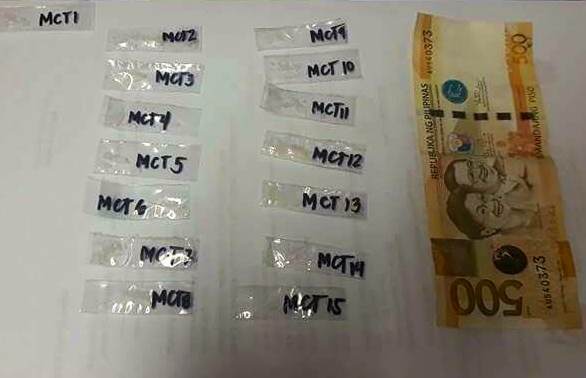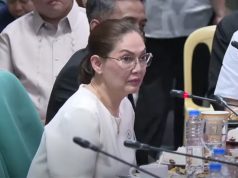
Supporters of the administration raised doubts over the credibility of Vice President Leni Robredo‘s report on the drug war even if the findings and numbers were acquired from government agencies. She also included suggestions for the anti-narcotics campaign to improve.
Robredo described the illegal drug war a “massive failure” in her much-anticipated report which she gathered during her short stint as co-chair of the Inter-agency Committee on Anti-Illegal Drugs (ICAD).
Robredo’s work with the committee was cut short when President Rodrigo Duterte fired her in November last year, which was barely a month before she accepted the position he offered out of whim.
Supporters of the administration decried that the data she cited ran counter to what the Philippine National Police and the local officials have presented to the public, that is, the number of illegal drug surrenderers and declared drug-free locations.
And we're expected to believe her because she was ICAD co-chair…for only less than 3 weeks? 😏
Leni acted more like a mole than a co-chair. pic.twitter.com/kd0bNOXTqV
— Boazanian (@tenkuken) January 6, 2020
However, the figures in the drug war report pertain to a different set of data—the number of illegal drugs seized and amount of frozen profits related to the illegal narcotics trade.
Kaya Natin! Champion VP @lenirobredo said Pres. Duterte’s drug war is a “massive failure” as the government hardly scratched the surface of the society’s problem despite all the money and resources given to it.
READ MORE: https://t.co/j9QFumKg5C pic.twitter.com/bdAWpAsIdF
— Kaya Natin! Movement (@KayaNatinPH) January 6, 2020
Summary of the report
Robredo said she’s giving the drug war a score of 1% out of 100% based on her findings in the 40-page report.
“If you liken it to an exam, the government’s score is one out of 100,” Robredo said.
“The campaign against illegal drugs has many aspects, but almost the entire funds were poured into neutralizing small-time pushers and users. They forgot to look into the aspect on where the bulk of drugs that victimize the youth and our citizens are coming from,” she added.
Poor results on illegal drug seizure
The PNP-Drug Enforcement Group (PDEA) was only able to haul 1,344.87 kilograms in the whole of 2019 out of the approximately 3,000 kilograms of shabu worth P25 billion consumed per week, the report said, citing data from the PNP-PDEA.
This was lower than the 1,053.91 kilograms seized in 2017 and 785.31 kilograms in 2018.
She also cited data from the Anti-Money Laundering Council showing P1.4 billion worth of frozen drug money in 2017 and 2018.
Despite the seemingly large figure, this is still meager next to the P1.3 trillion in yearly consumption in the illegal drug trade.
Cluttered data
Robredo also criticized the lack of common and reliable baseline data on the number of drug dependents in the country.
There’s also no uniform or standard process for monitoring the actions and interventions performed for the drug users who surrendered and have been arrested.
For example, more than 1.2 million users had surrendered and 300,000 more had been arrested in police operations since 2016.
If there are 4 million estimated drug users and pushers across the country, it means there are 2.5 million users and pushers left.
The PNP, moreover, said that around 6,000 Filipinos have been killed since the bloody campaign started in 2016.
New York-based Human Rights Watch, meanwhile, pegged the number of deaths in the drug war at around 12,000 in its 2018 World Report.
Vague purpose of the ICAD
The vice president also recommended that the chairmanship of ICAD be transferred from the PDEA to the Dangerous Drugs Board.
“I recommend the transfer of the ICAD chairmanship to the DDB. If the DDB leads the ICAD, we can expect a balanced campaign and all aspects will be addressed,” Robredo said.
Prior to her dismissal from the post, Robredo was not provided access to confidential information related to the drug war and national security despite her being entitled to it.
Instead, she met with officials of the United States and the United Nations Office on Drugs and Crime, which consequently earned the ire of Duterte and causing her to be removed from the ICAD.
Government reacts
Malacañang dismissed the report, particularly Robredo’s conclusion, as worthless or a “dud.”
“She didn’t say anything new. There’s nothing new in what she said,” presidential spokesperson Salvador Panelo said.
PDEA chief Aaron Aquino criticized this as a political attack against the president, noting that she only worked at the committee for 18 days.
Sen. Ronald dela Rosa, former PNP chief who first led the police operations on illegal drugs called “Oplan Tokhang,” likewise viewed this as a putting the government in a negative light.
“Where did she get her data? Or maybe she just chose the data that puts the government in a bad light and ignored the data that makes the government’s image look good,” Dela Rosa said.









